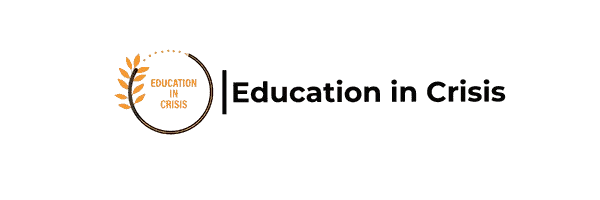School Meals & Nutrition
Every child deserves a chance. Be the reason they thrive today.
 DONATE NOW AND SUPPORT OUR MISSION.
DONATE NOW AND SUPPORT OUR MISSION.
School Meals & Nutrition
School meals represent a powerful, multisectoral tool, which can contribute to achieving multiple Sustainable Development Goals, including poverty (SDG1), hunger (SDG2), health (SDG3), education (SDG4), supporting girls and women (SDG5), economic growth (SDG8), reduced inequalities (SDG10), Responsible consumption and production (SDG12), climate action (SDG13) and strengthened partnerships (SDG17).
The global food crisis has pushed 153 million children into acute food insecurity representing nearly half of the 345 million people currently facing acute hunger in 82 countries. School meals are an essential protection measure and support system for vulnerable children, their families and communities.
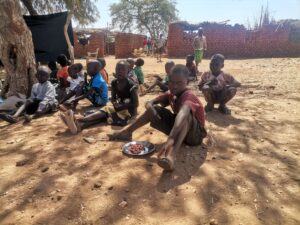
Hunger remains a key barrier to education in crisis settings. EiC works to ensure children receive nutritious meals to improve school attendance and learning outcomes.
School meals contribute in creating conditions that make it easier for children to attend school every day, stay for the entire school day, concentrate, participate, and learn. These programmes have been shown to increase enrollment by 9% and attendance by 8%, providing a strong incentive for parents to send their children to school. The benefits are particularly high for vulnerable groups and girls, with on-site meals and take-home rations increasing girls’ enrollment by 12%. School meal programmes are crucial interventions in both development and humanitarian contexts. They have been shown to produce lasting positive impacts across various Sustainable Development Goals and sectors.
The first 1,000 days from conception to age two are critical for a child’s health, but the next 7,000 days are also critical. Nearly 300 million schoolchildren suffer from anemia, losing around six IQ points (Intelligence Quotient) per child which affects a child’s cognitive abilities or cause learning difficulties, and 73 million spread across 60 countries go to school hungry. This leads to 200 million to 500 million school days lost annually due to ill health.
Ensuring access to nutritious diets and fostering healthy food choices and practices is vital for children’s development. School meal programmes provide a cost-effective way to deliver essential health and nutrition services. Programmes enhance meal nutritional value by using ingredients with extra nutrients added to make the food healthier, with 68% of programmes worldwide already doing so. High-quality school meals encourage healthy eating for all children, helping to combat child hunger, long-term obesity and other nutrition-related ailments.
Frequent and extreme weather events disrupt the education of 40 million children annually, damaging schools and diverting family resources to survival. School meals represent a unique opportunity to make big changes on how food is produced, processed, distributed and consumed in ways that create a healthier and more sustainable system that is fairer for everyone (food system transformation). By enhancing the reach, quality, and sustainability of school meals, such as in Home-grown school feeding programme and clean cooking initiatives, we can support healthier diets and create shorter, more sustainable value chains. This transformation boosts the economy of smallholder farmers, particularly benefiting women, and contributes to a more equitable, strong and adaptable food system.
In 2023, 450 million children lived in conflict-affected settings, with girls being 2.5 times more likely to be out of school. School meals can support humanitarian response by ensuring that children receive the necessary nutrition and educational support during crises, thereby fostering a sense of normalcy and community among the children who share those daily meals. Programmes play a long-term role in strengthening national stability and food security by providing a consistent, government-led service that families can rely on. Besides, food provision (SDG 2), school meal programmes boost agriculture, create jobs, increase school attendance and learning, and enhance health. They provide meals, snacks or take-home incentives, promoting social stability, supporting girls and women, and families. Additionally, programmes can integrate complementary interventions, including WASH (Water, Sanitation, and Hygiene), nutrition education, and other routine school health and nutrition services. EiC is implementing the Relief Kitchen: Nourishing Minds in Emergencies project which was piloted with funding from Norwegian Refugee Council (NRC) in South Kordofan state, Sudan.
EiC Key Interventions
School Feeding Programs: In partnership with WFP, providing daily meals in schools. Every day, over 100 million children in low- and lower-middle-income countries are going hungry. Millions go to school on an empty stomach – hunger affects their concentration and ability to learn. There are also millions – particularly girls – who simply do not go to school because their families need them to help in the fields or perform domestic duties. In conflict-affected countries, children are twice as likely to be out of school than their peers in stable countries – 2.5 times more likely in the case of girls.
School meal programmes can help address many of these challenges. They are a multisectoral game changer that improve children’s education, health and nutrition. More broadly, they support the whole community by providing an important safety net, and by strengthening food systems and economies.
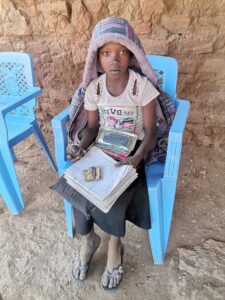
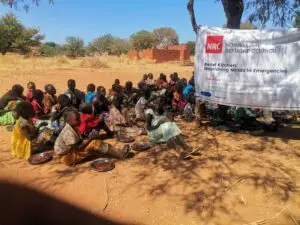
EiC advocates for nutrition education as a way to reinforce specific nutrition-related practices or behaviours to change habits that contribute to poor health. EiC believes that Nutrition education provides people with correct information on the nutritional value of foods, food quality and safety, methods of preservation, processing and handling, food preparation and eating to help them make the best choice of foods for an adequate diet. The provision of correct information is not in itself a sufficient objective to improve nutrition. A change in behaviour leading to desirable nutrition practices could include, for example, beginning to grow and eat dark-green, orange and yellow fruits and vegetables to protect the body from infectious diseases, or learning how to store maize or other food more safely to reduce nutrient losses and thereby increase household food reserves.
WASH (Water, Sanitation, and Hygiene)
Routine school health and nutrition services
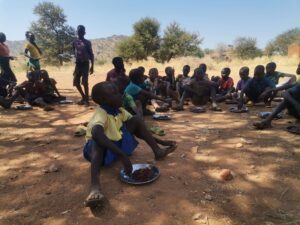
We cannot do it alone. Together, stronger we can.
Education and learning are not just about books and classrooms; it’s about offering hope, resilience, and the promise of a better future.
Despite the small support provided by EiC and other humanitarian actors, the education needs of children in emergencies far exceeds the assistance that is currently provided.
Greater funding is urgently needed to support the world’s most vulnerable children left behind with lifesaving education.
Let’s stand together to support these children and safeguard their right to education.
Their futures depend on it.
